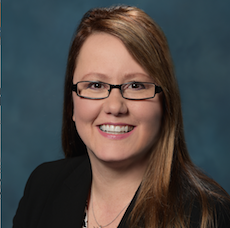
A conversation with a reader last week got me thinking some more about the importance of being accurate and precise in the language we use.
McKnight’s Senior Living reported on a survey of older adults and their adult children that asked them whether they would consider a senior living community for a loved one or, in the future, for themselves. The survey results were of potential interest to our readers, and yet it was the words chosen by the company conducting the research that caught the attention of one reader who contacted me. You see, the survey referred to “placing” a parent or parent-in-law in an independent or assisted living community.
“It is an irrelevant question, as it does not happen this way,” said Scott McQuinn, president and CEO of Cincinnati-based Life Enriching Communities. “In our communities, with over 700 people in independent or assisted living, I would say that easily less than 2% of the decisions to move in were made by an adult child. It is just very rare and has been so for a very long time. At most, the adult child might play a supportive role, either upfront or behind the scenes. However, the great majority of the time the adult child is informed by their older parent what they are doing.”
An interesting wrinkle in this case was that the survey language was used by a company that operates a website that exists to provide senior living information to consumers. It certainly doesn’t help consumers understand senior living when they are asked questions that are worded it this way.
So I started thinking and learning more about the ways in which the organizations representing senior living providers educate consumers. Argentum, the National Center for Assisted Living and LeadingAge all dedicate portions of their websites to information for potential residents and their families. The National Investment Center for Seniors Housing & Care website includes an industry Q&A section. The members on NCAL’s customer relations committee develop consumer education resources and materials, and NCAL and the American Health Care Association also support Care Conversations, a website designed to provide members of the general public with an overview of various post-acute and long-term care settings while encouraging them to make a plan and prepare for their potential needs.
The groups interact with the general public in other ways as well. For instance, LeadingAge just launched an issue-related advocacy effort known as the Senior Action Network in collaboration with Volunteers of America. And, of course, LeadingAge and Mather LifeWays indirectly educate consumers through the relatively recent website created to inform providers about the new name for continuing care retirement community, arrived at through an effort led by LeadingAge and Mather LifeWays.
Perhaps the newest consumer education effort by an industry organization is the Where You Live Matters campaign by the American Seniors Housing Association. That effort, launched in January to educate older adults and their families about various housing options, includes a website and outreach via Twitter and Facebook.
“I feel so good about this initiative. There’s so much upside for the industry and for consumers,” ASHA President David Schless told me.
This Wednesday from 8:30 to 9:30 p.m. ET, the campaign will host a Twitter chat to provide older adults and their adult children the opportunity to ask questions of senior living experts, including Roger Landry, M.D., M.P.H., president of Masterpiece Living, and Joy Loverde, author of “The Complete Eldercare Planner,” and others. You can join in or follow along using #WYLMChat.
It will be a chance for the industry to inform people about differences in the various residential settings and to dispel misperceptions.
“The kinds of images that people have in their minds about what a nursing home is or assisted living is — if they haven’t been personally exposed to it, they probably don’t know what it is, or they have a general awareness,” Schless said. I’ve seen the phenomenon with members of the general media who use the terms assisted living and nursing home interchangeably, and Schless said he’s seen it with members of Congress with whom he interacts. “One of the central opportunities of the Where You Live Matters campaign is to help people see what these communities are like, what life is like, what the senior living experience is like, because for many people, it’s probably dramatically different from what they might imagine in their minds.”
With increased understanding through events such as this one and other industry efforts, perhaps survey language will become more accurate and precise. Most importantly, older adults and their children will be more knowledgable and able to make plans that meet their needs and expectations. The health of the senior living industry depends on it.
Lois A. Bowers is senior editor of McKnight’s Senior Living. Follow her on Twitter at @Lois_Bowers.



